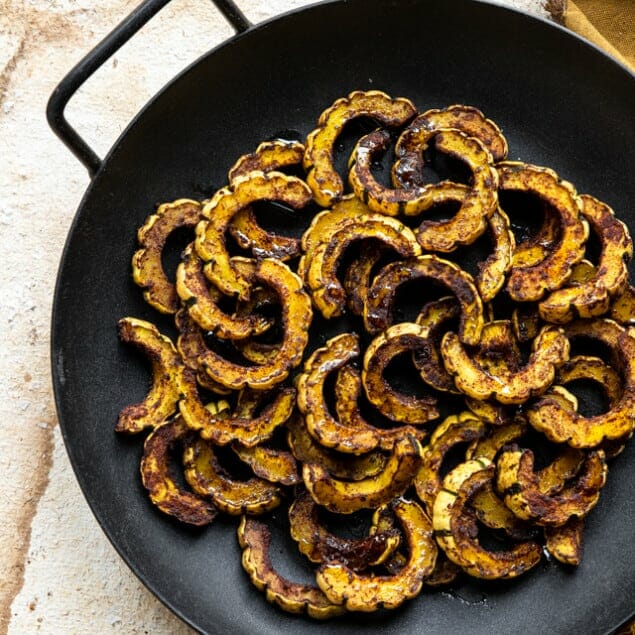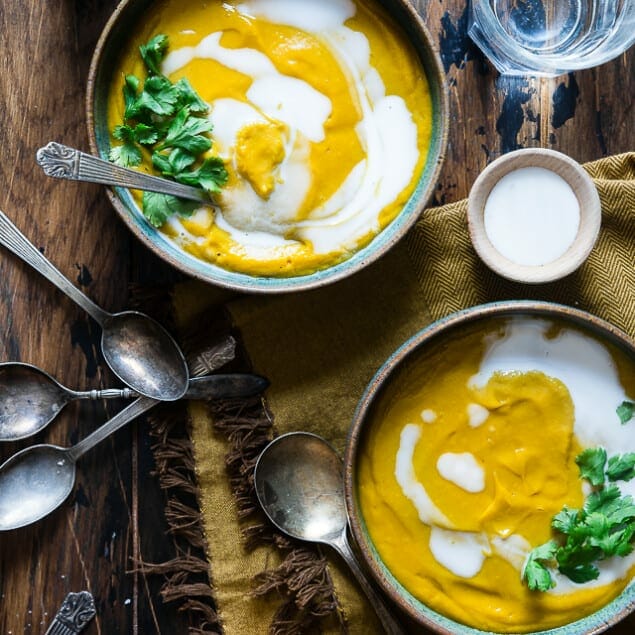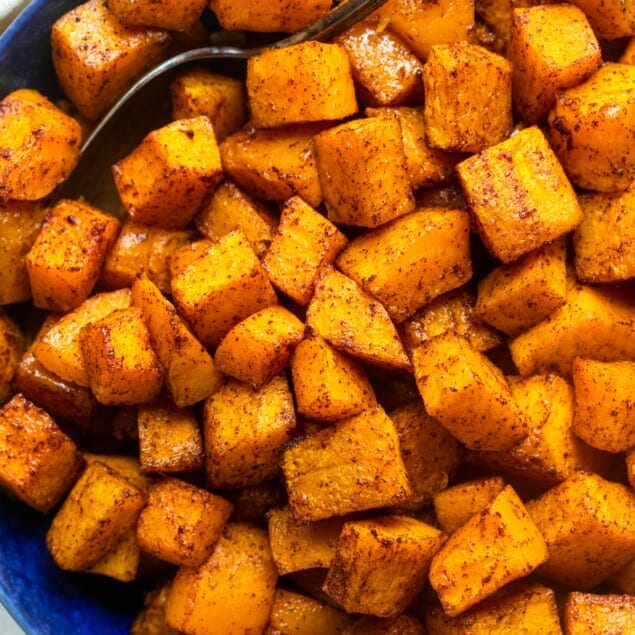Oh my gourd! These taste AMAZING!!!

Table of Contents
If we say the word “gourd”, what comes to mind? Halloween carvings? Autumnal squash dishes? Whole sections of your local grocer almost totally untouched? Gourds like pumpkins and squash kind of fall by the wayside of seasonal soups and occasional appearances in our front porch decorations but it might surprise you to learn that they have a lot more to offer than just fall flavors – they might even be better than some of your favorite swaps for keto-friendly snacks and sides!
When a plate of beautifully roasted golden cubes graces your table, one might be confident in identifying sweet potatoes on sight – but we should be considering our gourds more frequently! Gourds like pumpkins and butternut squash both have that signature hue, while also containing flexible (and plentiful) nutritional benefits! From beta-carotene (that pro-vitamin A compound that makes sweet potatoes and gourds colorful) to vitamins C, E, and a whole lot of Bs, many gourds trump sweet potatoes in nutrients while also having more fiber and fewer carbs and calories!
That’s why our roasted butternut squash is gonna hit all your checkboxes for a delicious and nutritious side dish! Instead of roasted potatoes, which have a huge well of carbohydrates to consider when eating, most people swap to sweet potatoes; but not us! Butternut squash is one such gourd which overachieves in seeming secrecy, making it the optimal swap for any keto-conscious consumer! Vegan, keto-friendly, and jam-packed with nutrients, roasted butternut squash is gonna nourish you and taste so good you’ll be saying “Oh my gourd!”.
Is Roasted Butternut Squash Healthy?
Vitamin A, vitamin C, vitamin E, thiamine, niacin, folate, magnesium, and potassium. That’s just an abridged list of the nutrients present in butternut squash – but that’s not what sweetens the pot when it comes to this gourd! In a cup of butternut squash, there’s half as many carbs as in sweet potatoes and enough fiber to make sure you feel full and healthy!
Our roasted butternut squash makes for the perfect vegan, keto, and paleo plate with no substitutions or alterations necessary to ensure that you can enjoy delicious and nutritious gourds!
A Brief History of Gourds…
When I was in middle school, everyone in my art class received a dried, hollow gourd with which we were instructed to etch into the sides, paint, or otherwise make crafts out of. I turned mine into a constellation projector by boring holes into the sides and placing an electric tealight inside! I’m recounting this memory of gourd crafting because, as it turns out, we’ve been doing something similar as a species for a very long time!
Different kinds of gourds have been found in the Americas, Thailand, and Africa as far back as 13,000 BCE and are suspected to be one of (if not the) first crops ever cultivated by humans! Because of their distinct malleable flesh, they’ve been purposefully grown into unique shapes for use as snuff boxes, cups, birdhouses, and even instruments! Drying the flesh of an already firm gourd gives the finished craft a rigidity that withstands the test of time while its vacuous insides allow for it to be used to carry water, small crops, and even a tune!
While gourds don’t often take up the role they used to in our crafts, they still make a presence in our households! Cucumbers are one of the most commonly consumed members of the gourd family, followed by pumpkins and other squash like our recipe’s butternut – but did you know that even your all-natural shower luffa is made from a gourd? We might not think of them often nor make many crafts with them anymore, but gourds have always had a huge place in the cultures of people across the globe and resonances of that presence are still with us!
INGREDIENTS
- 1 medium butternut squash (about 2-3 pounds)
- 2 tablespoons olive oil
- 1 teaspoon sea salt
- 1/2 teaspoon ground black pepper

INSTRUCTIONS
Preheat
Prepare the oven and baking sheet.
Prepare
Peel, seed, and cube squash.
Season
Toss squash with oil and spices.
Roast
Cook until tender and golden.
Devour!

FAQs & Tips
Roasted butternut squash is easy enough to make (just season and roast it!), but storing it can prove difficult as putting it in the fridge for longer than a couple of days runs the risk of drying out your deliciously roasted gourd. When storing your roasted squash, make sure it’s in an airtight container and keep a small drizzle of olive oil inside. Then, when you’re ready to heat and eat, toss the lightly oiled squash into a hot pan and ensure that you stir well!
Buttercup, banana, delicata, and both green and red kabocha make for wonderful alternatives to butternut squash as each has a naturally sweet flavor comparable to sweet potatoes while still remaining nutritionally superior!
Just like any fresh vegetables and fruit, you’re going to get the best results when buying your produce while it’s in season. Winter gourds like butternut squash are, naturally, harvested right upon the end of fall and can be enjoyed throughout the colder months! Test your gourds by pressing your thumbnail against the skin – if your nail pokes through, that squash isn’t ripe yet!

Serving Suggestions
Roasted butternut squash is the perfect substitute for any meal demanding a sweet potato side, especially when they’re keto favorites like Asparagus-Stuffed Chicken Breasts, No-Bean Turkey Chili, or any one of our easy keto dinner recipes! If you’re looking to use roasted butternut squash as a substitute for sweet potatoes in your next paleo plate, try them in our Buffalo Chicken Hash!


Ingredients
- 1 medium butternut squash about 2-3 pounds
- 2 tablespoons olive oil
- 1 teaspoon sea salt
- 1/2 teaspoon ground black pepper
Instructions
- Preheat your oven to 400°F (205°C) and line a baking sheet with parchment paper.
- Peel the butternut squash, cut it in half lengthwise, and remove the seeds. Then, cut the squash into 1-inch cubes.

- In a large bowl, toss the butternut squash cubes with olive oil, salt, and pepper until they are evenly coated.

- Spread the seasoned squash cubes in a single layer on the prepared baking sheet, ensuring they are not touching for even roasting.

- Roast in the preheated oven for 25-30 minutes, or until the squash is tender and the edges are starting to turn golden brown. Halfway through, stir the squash to ensure even cooking.

Nutrition Info:
Recipes written and produced on Food Faith Fitness are for informational purposes only.










Leave a Comment